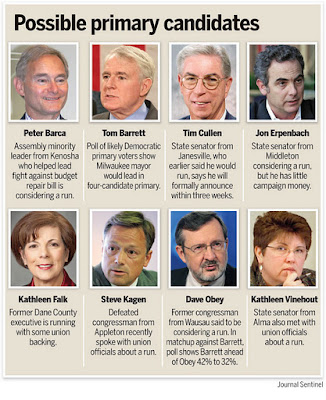Perhaps some fret all day, dreading the prospect of a sports bar in a business district in a town that has too few businesses of any kind.
I am not among them.
In small-town Whitewater, the main thoroughfare is called, creatively, Main Street. Along it one finds dozens of commercial businesses. Fast-food restaurants, strip malls, a Wal-Mart, etc., line much of the street. One of those shops was a coffee shop, and the owner had proposed the sale of that business to a new owner so that he might convert the location into a sports bar.
To operate as a sports bar, the prospective owner needed Planning Commission conditional-use approval to sell beer or liquor by bottle or glass at that business location. (The coffee shop already had, since 2004, a license to sell beer or liquor at the location.)
The Planning Commission discussion takes place beginning at 6:20 in the embedded video below.
Plan Commission Meeting 01/09/2012 from Whitewater Community TV on Vimeo.
There’s much fuss about whether people living nearby might hear noise, but it’s all conjecture — there’s been no noise of which anyone might complain. Furthermore, do bars in the downtown not co-exist with apartments much closer by than this sports bar would be to nearby homes?
Is there anyone who, having purchased a home or rented an apartment near the main business strip in town, should be surprised that a new business might move in? Several complaining residents act as if they own not only their properties, but have a right to stall retail development in a business district of which they’ve invested not a dime.
They should not be so indulged. If nearby residents didn’t want to be so close to the main retail district in town, they should have purchased or rented elsewhere.
Consider the presumptuous assertion that — in a commissioner’s estimation — another bar isn’t the best use for the property, or for Whitewater, generally.
That should be a market decision, of consumers and merchants in the marketplace. Should a sports bar succeed, it succeeds through consumer support; should it fail, it fails through lack thereof.
If there were a healthier climate already, we’d be able to attract more diverse businesses. Yet, there isn’t, because existing planning and municipal intervention have been a wreck.
To every commissioner who voted against a new business in this troubled town: what are you doing to fill these shops? You have the power to keep a place vacant, in a town that has too many vacancies already. What have you done to reduce vacancies?
The members of the commission all have jobs, or pensions, and not a one looks to be going hungry.
There was a sad moment in all this, when the applicant was asked about the possible clientele of the sports bar. More than one commissioner asked what the prospective clientele of the establishment might be. (One can guess why they asked: the hope that the prospective owner would say something foolish, so that they might pounce on it.)
The would-be owner was puzzled by their question, and answered more than once that he hoped for a clientele of ‘all people.’ To them, he must have seemed unsophisticated.
On the contrary, his answer was better than their questions. He answered in a way they may not have expected, or understood. He wasn’t answering simply about types or backgrounds, but about customers apart from those narrow characteristics.
I’m an optimist, in spite of provincial municipal interference in the marketplace. A decade from now, I believe Whitewater will be more diverse, and more cosmopolitan, than she is now. In that time, an answer of ‘all people’ won’t be unsophisticated; it will be the common reply in a fair, vibrant, prosperous city.




